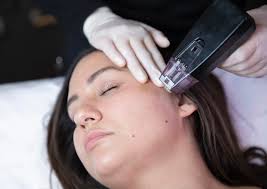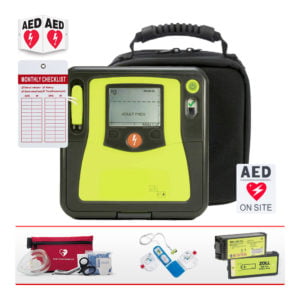Sleep Apnea and Anxiety: Is it Possible?
Anxiety can every now and then make sleep apnea worse—and vice versa. Sleep apnea is a commonplace scientific situation that reasons your respiratory to stop intermittently at some point of sleep. The maximum not unusual kind is obstructive sleep apnea (OSA), in which the upper airway gets blocked at some point of the night.
Around 22 million human beings within the U.S. Have Zopisign 10 sleep apnea.2 Untreated sleep apnea can lead to extreme medical complications and even unexpected dying. An envisioned 38,000 humans die every year from heart sickness complicated by sleep apnea.
This article discusses how sleep apnea and anxiety are connected, together with signs and symptoms, remedy, and how to speak to your medical doctor.
Man with anxiety in mattress at night
What Is Anxiety?
Anxiety is an emotion characterized by way of demanding mind and tension. It also can involve physical adjustments, along with an expanded coronary heart fee or excessive blood strain.3
Symptoms
Occasional anxiety is regular and expected.4 However, while someone stories chronic or excessive tension, they’ll have an tension sickness.
Someone can also have generalized tension sickness (GAD), for example, if they experience immoderate anxiety or worry most days for at the least six months.4 Their tension can motive problems in relationships, paintings, school, and different components of daily living.
According to the “Diagnostic and Statistical Manual of Mental Disorders, 5th Edition” (DSM-five), symptoms of GAD encompass:
Feelings of restlessness or tension
Excessive sweating
Dizziness
Fatigue
Irritability
Muscle anxiety
Difficulty concentrating
Intrusive or uncontrollable issues
Sleep problems, which includes issue falling or staying asleep, as well as low sleep fine
Other tension issues encompass panic disease (routine panic assaults) and phobia-related disorders (excessive worry of precise things or conditions).4
How Anxiety Affects Sleep
Sleep troubles and anxiety may be intricately linked.
Insomnia (difficulty falling asleep or staying asleep), persistent sleep deprivation, and terrible excellent sleep can worsen anxiety. In turn, pressure and tension could make it tough to fall or stay asleep and to get restful sleep frequently.5
For instance, someone with anxiety might toss and turn at night time because of their patterns of overthinking or intrusive worries. The next day, they will be less able to address every day stressors because their bodily, mental, and emotional functioning is compromised after a night of negative sleep.
The Anxiety and Depression Association of America (ADAA) points out that nearly all psychiatric issues involve some kind of disruption in sleep. People with persistent insomnia also are at a better danger of growing sleep-associated issues, including sleep apnea.6
What Is Sleep Anxiety?
Some human beings with sleep disorders, tension, or each eventually increase sleep anxiety. Sleep anxiety refers to distress approximately falling or staying asleep. This is a form of anticipatory tension, which involves a sense of dread and preoccupation.5
Sleep Apnea
Sleep apnea is a situation that reasons respiratory to forestall or grow to be shallow at some point of the night. These pauses in breathing, referred to as “apneas,” regularly final 10 seconds or more and may occur 30 or more instances in step with hour in severe cases.7
Symptoms
The most not unusual symptoms and signs of sleep apnea encompass:1
Loud, common snoring
Gasping or choking for the duration of sleep
Excessive daytime sleepiness
Difficulty concentrating
Headaches and dry mouth in the morning
Sexual disorder
If untreated, sleep apnea can result in numerous possible medical complications and different problems, consisting of:1
Decreased overall performance in paintings or school
Increased risk of injuries, such as vehicle crashes, due to daylight sleepiness
Heart disease
Heart failure (the heart is unable to pump sufficient blood for the frame’s wishes)
Stroke (a blockage of blood drift or bleeding within the brain)
Diabetes (the frame does not make or use insulin properly, resulting in excessive blood sugar)
High blood strain
Asthma (a persistent ailment of the lungs with constricted and infected airlines)
Atrial fibrillation (abnormal heart rhythm)
How Sleep Apnea Is Connected to Anxiety
A developing frame of proof shows that sleep apnea and tension are linked. It’s probable that each condition exacerbates the other: Disturbed sleep due to sleep apnea can increase sunlight hours stress and fatigue. Anxiety also can cause and worsen sleep apnea by way of making it tougher to go to sleep at night.8
Some research suggests that sleep apnea and tension are frequently co-occurring conditions. One 2014 take a look at revealed that human beings with OSA had been much more likely to have signs of tension. Severe OSA was connected to an even higher likelihood of hysteria signs and symptoms. People with sleep apnea had been also likelier to have each anxiety and melancholy than just one or the opposite.9
A 2019 examine echoed those results, revealing that the incidence of tension disorders and melancholy changed into higher in human beings with sleep apnea than in human beings without it. This become specifically authentic amongst girl patients.



Leave a Reply
You must be logged in to post a comment.